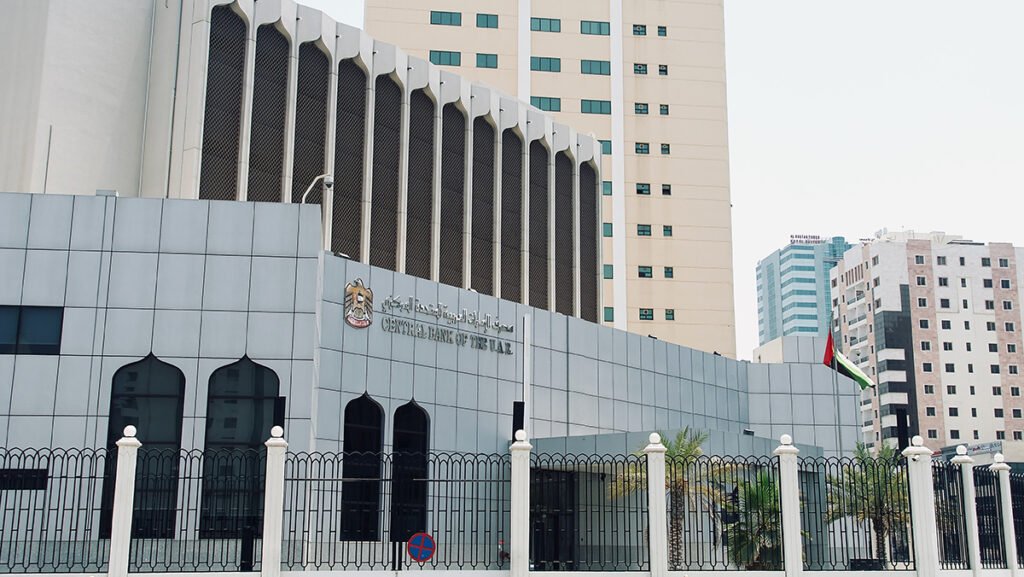In a firm move to protect the integrity of its financial system, the Central Bank of the UAE (CBUAE) has issued a substantial fine of AED 800,000 (equivalent to US$217,835) against a local exchange house. The reason? The exchange house failed to comply with the UAE’s strict laws on anti-money laundering (AML) and combating the financing of terrorism (CFT).
This action sends a powerful message to all financial institutions operating in the UAE that non-compliance with AML/CFT regulations will not be tolerated. The CBUAE continues to tighten its regulatory grip, aligning with global standards to ensure the UAE’s financial system remains safe and trustworthy. UAE Central Bank fines AED 800,000 for AML policy violations by exchange house. The Central Bank is actively monitoring .
Understanding the UAE Central Bank Fine
Why the Exchange House Was Fined
The fined exchange house failed to meet the mandatory compliance requirements set by the Central Bank. These regulations include robust procedures for:

- Identifying suspicious transactions
- Maintaining customer verification processes (KYC – Know Your Customer)
- Filing timely reports to the Financial Intelligence Unit
- Risk assessment of clients and transactions
- Having internal controls to detect and prevent potential money laundering or terror financing
The investigation revealed serious deficiencies in these areas, prompting the regulator to impose the fine.
The Importance of AML and CFT Laws in the UAE
What Are AML and CFT Laws?
Anti-Money Laundering (AML) laws are designed to prevent criminals from disguising illegally obtained funds as legitimate income. Similarly, Combating the Financing of Terrorism (CFT) laws work to stop money from being used to fund terrorist activities.

Both are critical to the stability and security of a country’s economy and are key pillars of the UAE’s financial regulation framework.
The UAE’s Growing Focus on Financial Integrity
Over the past few years, the UAE has significantly strengthened its efforts to fight financial crimes. This includes:
- Establishing a dedicated Executive Office for AML/CFT
- Issuing federal laws on AML/CFT, including Cabinet Decision No. (10) of 2019
- Adopting the Financial Action Task Force (FATF) recommendations
- Enhancing cross-border collaboration with international regulators
This recent UAE Central Bank fine is not an isolated event but part of a larger national strategy to clamp down on illegal financial activities.
Consequences of Non-Compliance for Exchange Houses
What Happens When an Exchange House Fails AML/CFT Obligations?
When an exchange house fails to meet its AML and CFT obligations, the consequences can be severe:
- Financial penalties, like the AED 800,000 fine in this case
- Operational restrictions, including license suspension or revocation
- Reputational damage, affecting trust and business operations
- Criminal liability for individuals responsible for negligence
These consequences are designed to serve as a deterrent to other institutions.

The Role of the Central Bank of the UAE (CBUAE)
Regulating for a Safer Financial System
The CBUAE plays a vital role in supervising the banking and financial services sector. It ensures that all banks, exchange houses, insurance firms, and finance companies comply with the country’s AML/CFT requirements.
Its supervisory activities include:
- Regular inspections and audits
- Issuing guidelines and circulars
- Enforcing penalties for violations
- Coordinating with other government and international bodies
The AED 800,000 fine serves as a reminder of the CBUAE’s commitment to proactive supervision and enforcement.
Implications for Other Exchange Houses and Financial Institutions
This incident is likely to cause a ripple effect across the financial industry in the UAE. Other exchange houses and financial service providers will now:
- Re-evaluate their internal AML/CFT procedures
- Conduct staff training to increase awareness
- Review risk profiles and update KYC processes
- Enhance their monitoring systems for suspicious transactions
The fine reinforces the importance of a compliance-first mindset in the financial industry.
Why Strong AML/CFT Policies Matter for the UAE
The UAE is a global financial hub, attracting businesses, investors, and tourists from all over the world. As such, it faces a higher risk of being used for money laundering and terrorist financing if not properly regulated.
Strong AML/CFT enforcement:
- Builds investor confidence
- Protects economic stability
- Prevents criminal activity from thriving
- Ensures compliance with international obligations
Fines like this one demonstrate that the UAE is serious about protecting its reputation and economic health.
Public Reaction and Industry Feedback
The fine has sparked discussions across the financial and compliance communities. Experts and industry insiders are viewing it as:
- A wake-up call for firms that may be falling behind on compliance
- A necessary move to ensure all players are held accountable
- An opportunity to strengthen internal compliance frameworks
Some compliance officers have called for more guidance and support from regulators to help smaller firms meet expectations without being overwhelmed.

The Way Forward: Preventing Future Violations
To prevent future violations, exchange houses and financial institutions in the UAE need to adopt a proactive approach to compliance. This includes:
1. Regular Internal Audits
Frequent internal reviews can help identify gaps in AML/CFT processes and correct them before they result in regulatory action.
2. Advanced Compliance Technology
Using AI and machine learning tools to detect patterns and flag suspicious activities can improve accuracy and speed.
3. Employee Training
AML/CFT training should be ongoing, not just a one-time event. Staff at all levels need to be aware of their responsibilities.
4. Dedicated Compliance Teams
Firms should invest in building strong compliance departments led by experienced professionals.
5. Engaging with Regulators
Staying in close communication with the CBUAE can help institutions stay updated on evolving rules and expectations.
Conclusion: A Strong Message Through the UAE Central Bank Fine
The UAE Central Bank fine of AED 800,000 serves as a clear warning and a powerful example of the government’s no-nonsense stance on money laundering and terrorism financing.
It reflects the CBUAE’s mission to uphold financial integrity, protect the economy, and fulfill global compliance commitments. As the UAE continues to grow as a financial hub, such enforcement actions will become increasingly important.
For all financial institutions operating within the UAE, the message is clear: compliance is not optional, it’s essential.
Do follow UAE Stories on Instagram
Read More: Flying Taxis In Dubai By 2026: What You May Pay, Where They Will Land














